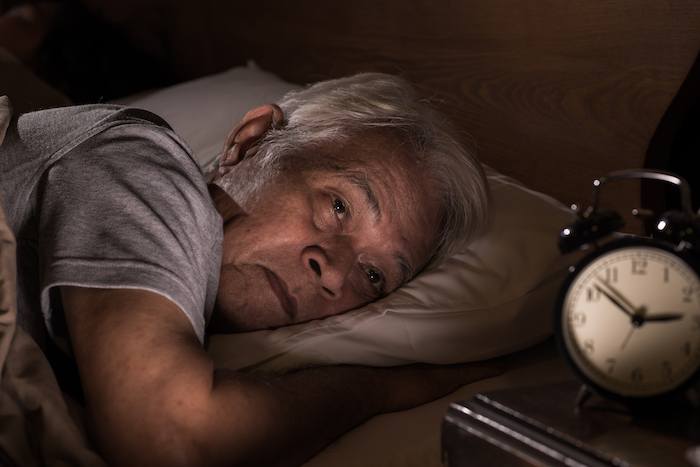 Getting less than five hours of sleep in mid-to-late life could be linked to an increased risk of developing at least two chronic diseases, finds a new study that analyzed the impact of sleep duration on the health of more than 7,000 men and women at the ages of 50, 60 and 70.
Getting less than five hours of sleep in mid-to-late life could be linked to an increased risk of developing at least two chronic diseases, finds a new study that analyzed the impact of sleep duration on the health of more than 7,000 men and women at the ages of 50, 60 and 70.
Researchers examined the relationship between how long each participant slept for, mortality and whether they had been diagnosed with two or more chronic diseases (multimorbidity) – such as heart disease, cancer or diabetes – over the course of 25 years.
People who reported getting five hours of sleep or less at age 50 were 20% more likely to have been diagnosed with a chronic disease and 40% more likely to be diagnosed with two or more chronic diseases over 25 years, compared to people who slept for up to seven hours.
Additionally, sleeping for five hours or less at the age of 50, 60, and 70 was linked to a 30% to 40% increased risk of multimorbidity when compared with those who slept for up to seven hours.
Researchers also found that sleep duration of five hours or less at age 50 was associated with 25% increased risk of mortality over the 25 years of follow-up – which can mainly be explained by the fact that short sleep duration increases the risk of chronic disease(s) that in turn increase the risk of death.
According to lead author, Dr Severine Sabia (UCL Institute of Epidemiology & Health, and Inserm, Université Paris Cité): “Multimorbidity is on the rise in high income countries and more than half of older adults now have at least two chronic diseases. This is proving to be a major challenge for public health, as multimorbidity is associated with high healthcare service use, hospitalizations and disability.
“As people get older, their sleep habits and sleep structure change. However, it is recommended to sleep for 7 to 8 hours a night – as sleep duration above or below this have previously been associated with individual chronic diseases.
“Our findings show that short sleep duration is also associated with multimorbidity.
“To ensure a better night’s sleep, it is important to promote good sleep hygiene, such as making sure the bedroom is quiet, dark and a comfortable temperature before sleeping. It’s also advised to remove electronic devices and avoid large meals before bedtime. Physical activity and exposure to light during the day might also promote good sleep.”
As part of the study, researchers also assessed whether sleeping for a long duration, of nine hours or more, affected health outcomes. There was no clear association between long sleep duration at age 50 and multimorbidity in healthy people.
However, if a participant had already been diagnosed with a chronic condition, then long sleep duration was associated with around a 35% increased risk of developing another illness. Researchers believe this could be due to underlying health conditions impacting sleep.
Jo Whitmore, senior cardiac nurse at the British Heart Foundation said: “Getting enough sleep allows your body to rest. There are a host of other ways that poor sleep could increase the risk of heart disease or stroke, including by increasing inflammation and increasing blood pressure.
“This research adds to a growing body of research that highlights the importance of getting a good night’s sleep.”
Source: Séverine Sabia, Aline Dugravot, Damien Léger, Céline Ben Hassen, Mika Kivimaki, Archana Singh-Manoux. Association of sleep duration at age 50, 60, and 70 years with risk of multimorbidity in the UK: 25-year follow-up of the Whitehall II cohort study. PLOS Medicine, 2022; 19 (10): e1004109 DOI: 10.1371/journal.pmed.1004109











